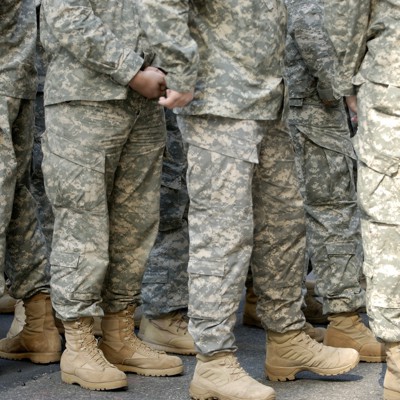
Three years have passed since President Joe Biden signed an executive order lifting the military’s restrictions on trans service members. A few months later, the Veterans Affairs Department’s secretary declared that gender-confirmation surgery might be offered by the organization. The Transgender American Veterans Association sued the VA on Thursday over its inaction because that change has never materialized.
Transgender soldiers feel like they are being “used for political showmanship,” according to Rebekka Eshler, chairman of TAVA, who claimed that the Biden administration had made pledges without taking any actual action.
Eshler stated, “We’re filing the petition because we seem to be stuck.” “Nothing has been heard as of yet. Every day we’ve inquired about the change, it’s either the upcoming year or the following week. We are aware that it is on the secretary’s desk, but they haven’t provided us with any explanations for why it has not progressed. All we want to hear is the reason. We want to restore faith.”
The VA is required by the petition to reply within 30 days. When asked for comment, the administration responded that it “does not comment on potential or ongoing litigation.”
Gender-confirmation surgeries should become recognized as “medically necessary” and provided to soldiers, according to a formal complaint TAVA submitted in 2016. Other non-surgical gender-affirming services offered by the VA include hormone therapy, voice coaching, gender-affirming prosthetics, pre- and post-operative care, and support groups.
According to Eshler, trans people serve in the military more frequently than their cisgender counterparts, but due to prejudice, shame, and a lack of resources, they are much less likely to use VA facilities for medical treatment. Research estimates that transgender men and women are two to three times more likely to enlist in the military, despite the lack of data. Eshler claimed that the VA’s health care system is only used by 6.25 percent of trans soldiers.
Eshler remarked, “We don’t have faith in the VA.” “They don’t even adhere to their own policies.” There are numerous stories, such as the VA mistreating patients, the lack of care coordination among facilities, and the absence of a nationwide line where complaints are taken or perhaps tracked.
The VA did not offer gender-confirmation surgery, and private care would have cost about $60,000 out-of-pocket, according to Texas-based trans veteran Natalie Kastner, who claimed she might have died on March 5, 2022, because she felt there were no other options for her. She then decided to take things into her own hands.
Kastner remarked, “I woke up and I was feeling gender dysphoric.” With a paring knife and some scissors, I entered my bathroom, sat down in the tub, and made an attempt at self-surgery.
Her cat afterward woke her up after she had cleaned the bathroom and returned to bed. Kastner claimed she drove herself to the closest emergency area where it was discovered she had cut through an artery after noticing that she was still bleeding heavily despite not feeling any pain.
Kastner, who served from 2006 to 2008 before being honorably discharged due to a back injury, said, “I did this to correct my body.” “I didn’t want to die.” I greatly care about my ex-wife and my two kids, and I never want to leave them in such a way. But that night, my gender dysphoria got out of control, and I lost it.
Suicide is a greater risk for transgender veterans than it is for the general population and the veteran community. According to the Centers for Disease Control and Prevention, the suicide rate among veterans is already more than 57% higher than that of civilians. Additionally, compared to 0.07% of all adults, about 40% of transgender people in the United States attempt to commit suicide at least once in their lifetime. However, a peer-reviewed study from 2023 that was published in The Cureus Journal of Medical Science found that trans veterans are more than 20 times more likely than other veterans to engage in “suicide-related behaviors.”
“Surgery saves lives,” declared TAVA member and 39-year-old Kastner. I would have waited if I had access to the procedure. I would have been hopeful.
She emphasized the impact on her health and the importance of it to veterans.
Kastner stated, “The VA says they may offer care for those who have served.” “They’re letting us die by not providing these surgeries.” How does that help those who have already served?



